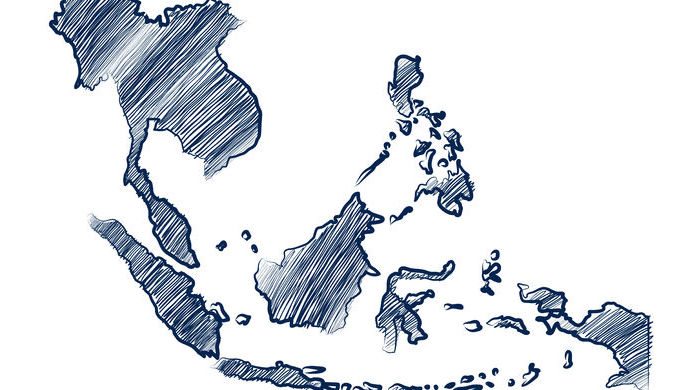Entrepreneurship is only glamourous on the surface but tough behind the scenes

The digital era is an age of disruption when starting your own tech start-up is glamorous as working for a multi-national company or bank in our parent’s age. We have seen and heard a lot of western entrepreneurs like Elon Musk and Mark Zuckerberg or even prominent Asian entrepreneurs like Jack Ma and Robin Li.
Different environments require different approaches
The problem is that these entrepreneurs live in a culture that is different from ours. They form different expectations and views. In the United States, freedom of speech is taken for granted, but in Singapore and other parts of Southeast Asia, certain speeches can land you in jail. As a result, the US has vibrant ecosystems which accepts different views and allows for different styles of startups (e.g., Seattle has a history of producing large items like aircrafts instead of microprocessors in San Francisco).
In China, competition for instruments of success, university places and startups, are highly intense. One quarter of Chinese students commit suicide over exams results every year. Chinese start-ups are forced to cheat or exaggerate about their product features to secure funding in a hyper competitive market. There are literally thousands of companies (compared to 15 in the US) vying for 1 product segment. (One example is the “rainbow” bike sharing industry.)
If you take the advice of Mark Zuckerberg or Jack Ma wholesale, you might wonder why they don’t work for you. It might not be that their advice is bad but rather their advice doesn’t fit the cultural norms of Southeast Asia or ASEAN, which has its own share of successful entrepreneurs and it is better to take pointers from them.
Common characteristics of local ASEAN heroes
Instead of looking at highly successful entrepreneurs such as Anthony Tan of Grab, we should look at more modest success such as Lai Chang Wen of Ninja Van, Joel Neoh of KFit and Paul Srivorakul of Ensogo. These entrepreneurs hail from Singapore, Malaysia, and Thailand respectively. While they have different family background, they share these common characteristics.
Rebel & Find New Ways to Fix Problems
Chang Wen quit his high paying banker job after he can’t find a fitting shirt to form Marcella. After forming Marcella, he realized his biggest obstacle was losing items in transit. Therefore, he set up Ninja Van at the age of 27 and studied the logistics industry with 2 founders from the ground up which includes delivering goods himself. Combining first-hand experience and technological advances, he discovered a more efficient way to deliver parcels.
Joel Neoh didn’t accept the norm of subscribing for a gym membership for 1 year to gain access to just one gym. Joel simply created an online aggregator where different gyms pooled their access for a fee to gain exposure to more consumers.
Paul Srivorakul didn’t like how amateurish Thai advertising was compared to standards in the US in 2000. Paul picked up the basics of online advertising and started Admax from the ground up. Of course, that was 17 years back where you can still have the space to learn Dreamweaver to out-compete the incumbents simply because they are doing things wrongly.
Think Big & Go Regional
Paul grew his first business from 2 to 24 people and grew his revenue from $150,000 to $2.5 million within 1 year after partnering with Microsoft before starting Admax. With Admax, he went from Thailand to conquer the whole of South East Asia by becoming its largest ad network.
Joel expressed his belief that businesses must think big or lose their ground to competitors who buy you out or out compete with you. It is summed up in his think big or go home philosophy. Today, he is using his new umbrella company, Fave, to expand into the ASEAN region from Malaysia and Indonesia to Singapore and then to Thailand, Vietnam and Philippines.
Chang Wen drove Ninja Van to go regional in its second year of existence by raising $30 million in 2016 to add Thailand and the Philippines to its present list of Singapore, Malaysia, Indonesia and Vietnam. He aims to add the Ninja Van fleet to the tier two cities instead of the tier one cities in the region. Today, he is thinking of doubling his previous round with $60 million of investment.
Stepping out of the familiar environment of your home country is often challenging. It helps to have a 3E accounting network to provide the local know-how of operating in a foreign land. Often ambition is more important than local knowledge.
Other Characteristics
Rebelling and going regional are the two defining characteristics of successful entrepreneurs in ASEAN. Of course, there are other characteristics. Paul was resourceful when he started with US$4000. He got free office space with a large Thai company and projected a successful image to close deals.
Chang Wen raised millions in wealthy Singapore by having lunch with angel investors and showing them his mattress bed as proof of his dedication. Joel had his lucky break when his first venture to match jobs to students made him millions to jump into new ventures.
Entrepreneurship is only glamourous on the surface but tough behind the scenes. With these 2 winning characteristics, you will just have to adapt your way to success as circumstances bring themselves to you.
—-
Featured Image Credit: 123RF
The post Different environments require different advice, and here are some words for Southeast Asian startups appeared first on e27.